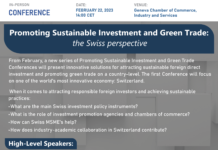Global foreign direct investment (FDI) collapsed in 2020, falling by 42% to an estimated $859 billion, from $1.5 trillion in 2019.
FDI finished 2020 more than 30% below the trough after the global financial crisis in 2009 and back at a level last seen in the 1990s. The decline was concentrated in developed countries, where FDI flows fell by 69% to an estimated $229 billion. Flows to Europe dried up completely to -4 billion (including large negative flows in several countries). A sharp decrease was also recorded in the United States (-49%) to $134 billion.
The decline in developing economies was relatively measured at -12% to an estimated $616 billion. The share of developing economies in global FDI reached 72% – the highest share on record. China topped the ranking of the largest FDI recipients. The fall in FDI flows across developing regions was uneven, with -37% in Latin America and the Caribbean, -18% in Africa and -4% in developing Asia. East Asia was the largest host region, accounting for one-third of global FDI in 2020. FDI to the transition economies declined by 77% to $13 billion. Find out more reports HERE.
The decline affected all forms of FDI
New greenfield investment project announcements were 35% lower in 2020, cross-border M&A by 10%. Further weakness is expected in 2021, risking sustainable recovery.
UNCTAD says uncertainty about the COVID-19 pandemic’s evolution and the global investment policy environment will continue to affect FDI flows in 2021. For developing countries, the prospects for 2021 are a major concern.
Despite projections for the global economy to recover in 2021 – albeit hesitant and uneven – UNCTAD expects FDI flows to remain weak due to uncertainty over the evolution of the COVID-19 pandemic.
The organization had projected a 5-10% FDI slide in 2021 in last year’s World Investment Report.
“The effects of the pandemic on investment will linger,” said James Zhan, director of UNCTAD’s investment division. “Investors are likely to remain cautious in committing capital to new overseas productive assets.”
Source/Image Credit: UNCTAD





